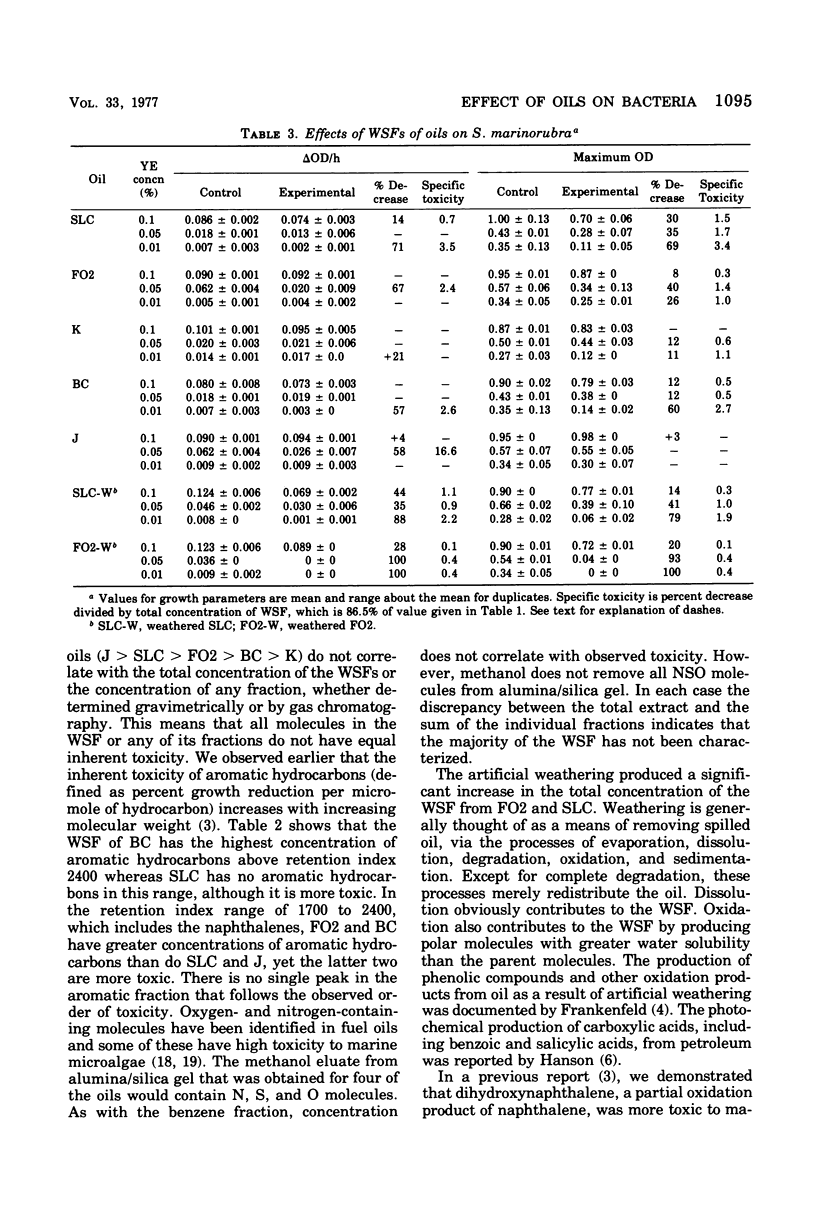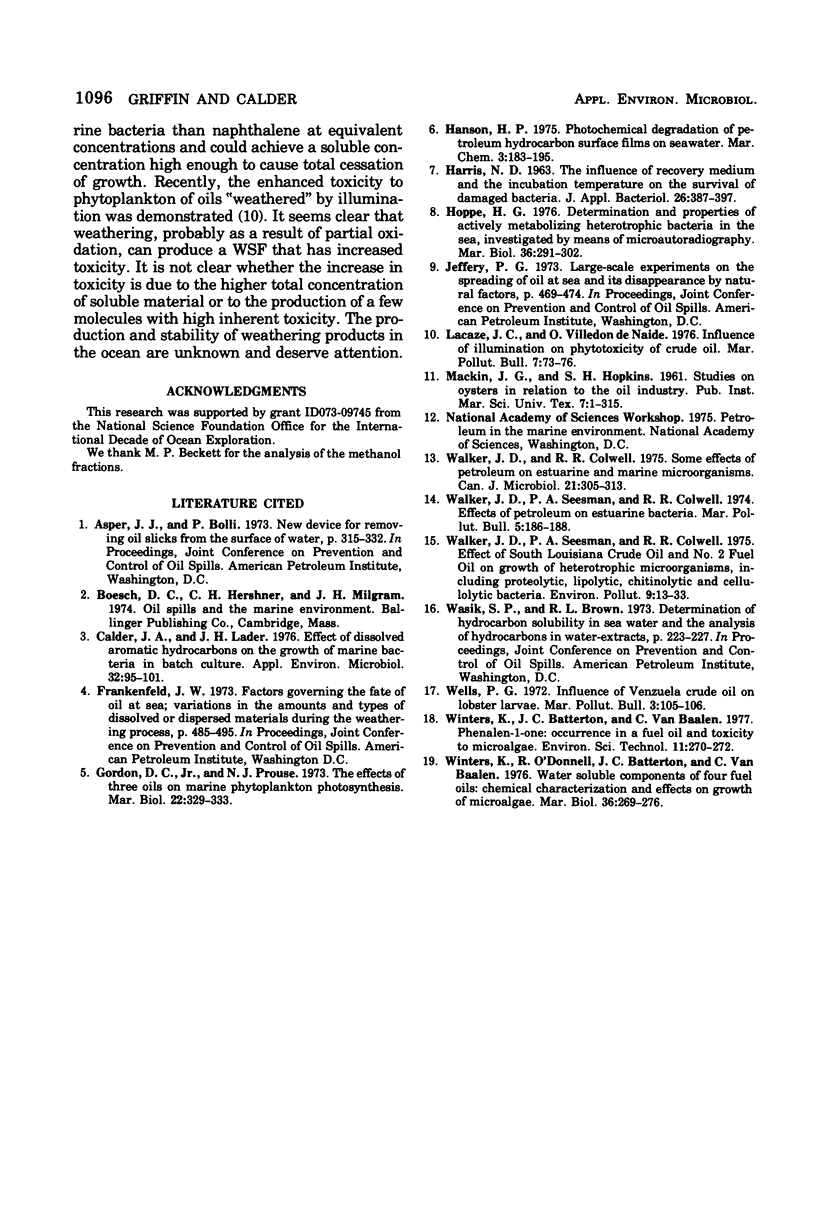Abstract
The water-soluble fractions of three crude and two refined oils reduced the growth rate and maximum cell density of the marine bacterium Serratia marinorubra grown in batch culture. The weathering of a crude and a refined oil was simulated in the laboratory. The water-soluble fractions remaining from this process were more toxic to S. marinorubra than were the parent unweathered oils. Increases in the magnitude of toxic effect of 3 to 30 times were observed as a function of decreasing the concentration of yeast extract in the cultures from 0.1 to 0.05 and 0.01%. The toxicity did not correlate with the concentration of total water-soluble fraction or of aromatic hydrocarbons in the water-soluble fraction. Affected cultures did not exhibit a residual toxicity after being back-inoculated into control media.
Full text
PDF




Selected References
These references are in PubMed. This may not be the complete list of references from this article.
- Calder J. A., Lader J. H. Effect of dissolved aromatic hydrocarbons on the growth of marine bacteria in batch culture. Appl Environ Microbiol. 1976 Jul;32(1):95–101. doi: 10.1128/aem.32.1.95-101.1976. [DOI] [PMC free article] [PubMed] [Google Scholar]
- Walker J. D., Colwell R. R. Some effects of petroleum on estuarine and marine microorganisms. Can J Microbiol. 1975 Mar;21(3):305–313. doi: 10.1139/m75-044. [DOI] [PubMed] [Google Scholar]


